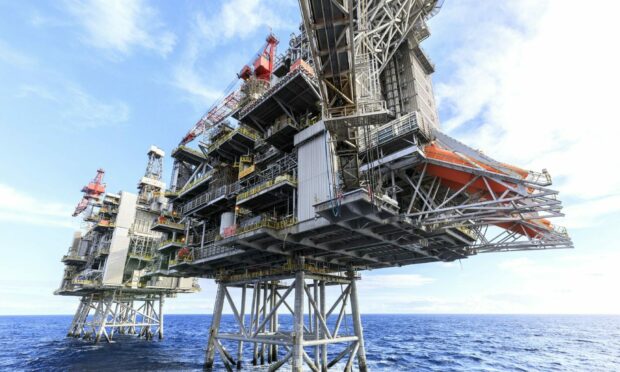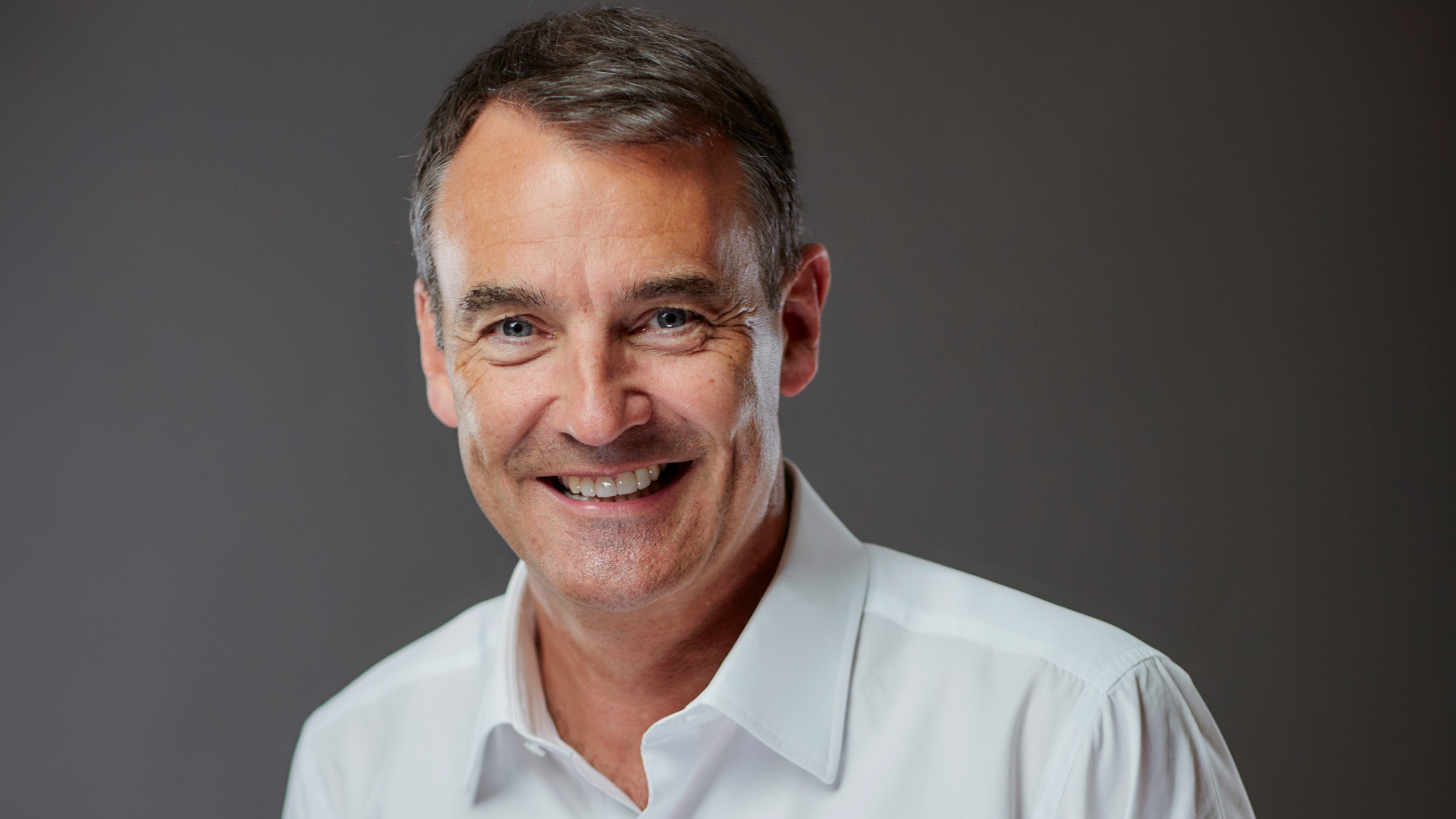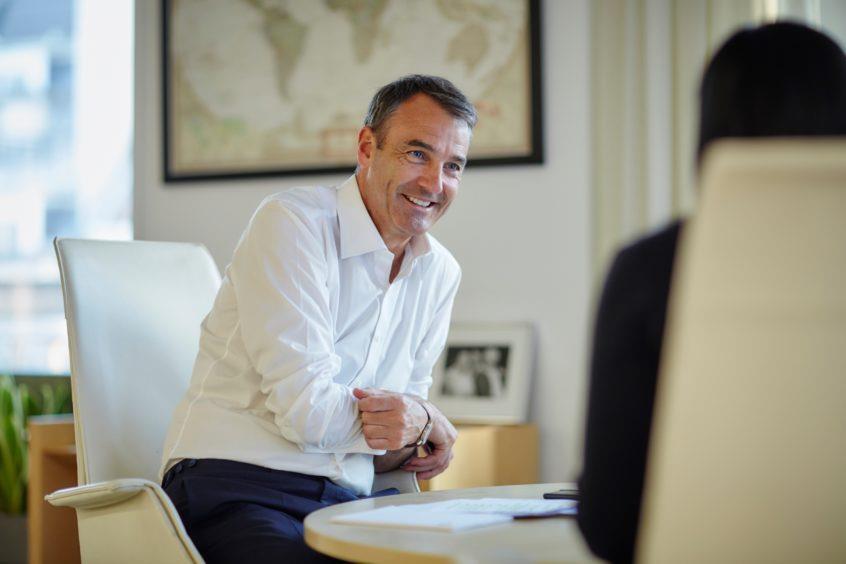Energy giant BP has pledged to invest £18 billon in the UK by 2030 as it faces pressure to pay a windfall tax.
The commitment comes after it raked in profits of nearly £5bn in the first three months of the year.
BP’s UK investment pledge follows widespread calls for an oil and gas windfall tax.
Chief executive Bernard Looney said the energy giant was “backing Britain” with its spending programme, which includes major oil and gas and offshore wind investment.
The giant Clair field west of Shetland, Schiehallion and the Murlach, Kate and Mungo fields, near the BP-operated Etap hub in the central North Sea, are all poised to benefit.
New investment in North Sea exploration
BP – whose shares were up nearly 6% to slightly over £4.14 by the London market close – said it would also invest in exploration around its existing North Sea production hubs, as well as asset electrification.
Mr Looney said: “We’re backing Britain. It’s been our home for over 110 years, and we’ve been investing in North Sea oil and gas for more than 50 years.
“We’re fully committed to the UK’s energy transition – providing reliable homegrown energy and, at the same time, focusing on the drive to net-zero.
“And we have ambitious plans to do more and to go faster. Our plans go beyond just infrastructure – they see us supporting the economy, skills development and job opportunities in the communities where we operate. We are all in.”
BP reported underlying profits of £4.9bn, compared with £3.3bn for the previous quarter.
Statutory pre-tax losses of £14bn, against profits of £5.2bn a year ago, were mainly due to BP’s decision to relinquish its 19.75% shareholding in Russian oil and gas company Rosneft in response to the crisis in Ukraine.
The company took a hit of £20.4bn as a result of its Rosneft exit.
Total revenue and other income for Q1 2022 came in at £40.1bn, up from £29.2bn a year ago following a surge in oil prices.
Net debt fell to £22bn, from £24.5bn at the end of last year.
£1bn for Treasury
BP anticipates paying up to £1bn in taxes for its North Sea profits in 2022, on top of around £250 million paid annually in recent years.
Energy secretary Kwasi Kwarteng recently told energy companies to reinvest profits and double down on investments to increase supply and speed up the transition to net -zero.
UK energy firms have faced growing calls for a windfall tax on their profits to help alleviate the cost-of-living crisis.
Windfall tax ‘a blunt instrument’
Aberdeen and Grampian Chamber of Commerce policy director Ryan Crighton is among those who are opposed to such a measure.
Mr Crighton said: “While BP’s underlying profits in the first quarter of the year have more than doubled, the Treasury’s tax take from the industry has risen by nearly 700% over the same period.
“Proponents of a windfall tax have said it is only fair and right that oil and gas companies pay more taxes in good times. They are right, and energy companies are paying more, to the tune of £19 million per day.”
He added: “We have said repeatedly the windfall tax on North Sea profits is a blunt instrument that will achieve little apart from making the North Sea – where companies are already taxed at a rate of 40% – less attractive to investors.
“That would place jobs, tax revenues and our domestic energy security at risk, and also limit ability and appetite to invest in the low-carbon research and development we so desperately need. ”
We’re fully committed to the UK’s energy transition.”
Bernard Looney, CEO, BP.
BP has increased its position in offshore wind energy. It secured acreage in the ScotWind leasing round, alongside EnBW, to build a 2,907 megawatt offshore wind farm.
The oil giant has also agreed to form an offshore wind partnership with Marubeni, advanced its hydrogen strategy and struck a deal to form a joint venture with Aberdeen City Council to develop a hydrogen hub.
Energy firm ‘continues to perform’
Mr Looney said: “In a quarter dominated by the tragic events in Ukraine and volatility in energy markets, BP’s focus has been on supplying the reliable energy our customers need.
“BP continues to perform and step-by-step we are making progress executing our IEC (integrated energy company) strategy – producing resilient hydrocarbons to provide energy security, while investing with discipline in the energy transition.”
Despite the financial woes incurred by Rosneft and windfall tax warnings from some senior politicians, BP announced its intention to deliver a further share buyback – worth £2bn.
BP executed share buybacks worth £1.3bn and generated surplus cash flow of £3.3bn during the first quarter.
The move to hand more money back to shareholders will likely lead to more flak for BP, which also announced a first quarter dividend of 4.37p per share, payable in June.




Conversation